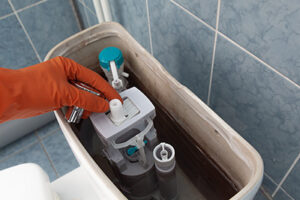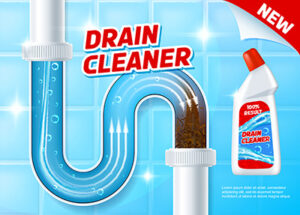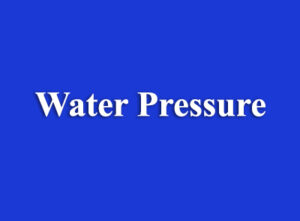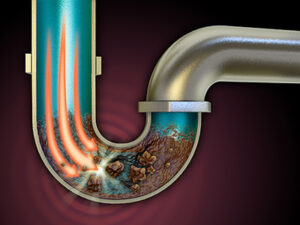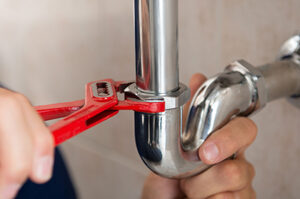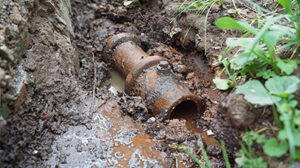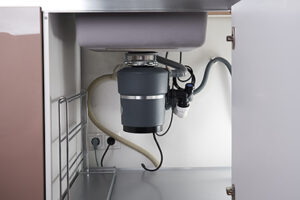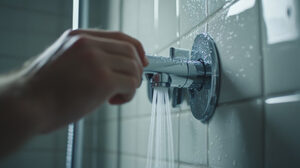A sewer line backup is one of the most unpleasant plumbing problems a homeowner can face. When wastewater has nowhere to go, it can back up into sinks, tubs, toilets, or even onto floors—creating a serious health hazard and potential property damage. Understanding the most common causes of sewer line backups can help you spot warning signs early and avoid costly repairs.
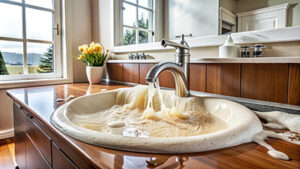
1. Tree Root Intrusion
Tree roots are naturally drawn to moisture. Small cracks or loose joints in your sewer line can allow roots to enter the pipe, where they continue to grow and block the flow of wastewater. Over time, roots can completely clog or even break the sewer line, leading to recurring backups.
2. Grease and Food Buildup
Pouring grease, fats, or cooking oils down the drain may seem harmless, but these substances harden as they cool. Combined with food particles, grease buildup can narrow your sewer pipe and eventually cause a blockage that affects your entire plumbing system.
3. Flushed Non-Flushable Items
Items like wipes (even “flushable” ones), paper towels, feminine hygiene products, and diapers do not break down like toilet paper. These materials can accumulate in the sewer line and create stubborn blockages that lead to backups.
4. Aging or Damaged Sewer Pipes
Older homes may have sewer lines made from clay, cast iron, or Orangeburg pipe. Over time, these materials can crack, corrode, or collapse, restricting flow and increasing the risk of sewage backing up into the home.
5. Heavy Rain and Ground Saturation
During periods of heavy rain, municipal sewer systems can become overwhelmed. Excess groundwater can also seep into cracked sewer lines, pushing wastewater back toward your home instead of away from it.
6. Sewer Line Bellies or Misaligned Pipes
A “belly” in the sewer line occurs when a section of pipe sinks, creating a low spot where waste and debris collect. These areas slow drainage and frequently lead to repeated backups.
Warning Signs of a Sewer Backup
-
Multiple drains clogging at the same time
-
Gurgling sounds from toilets or drains
-
Sewage odors inside or outside the home
-
Water backing up into tubs or showers
How a Professional Plumber Can Help
Professional plumbers use video camera inspections to pinpoint the exact cause of sewer backups. Depending on the issue, solutions may include hydro jetting, root removal, pipe repair, or full sewer line replacement.
Don’t Ignore Sewer Backup Warning Signs
Addressing sewer line problems early can prevent extensive water damage and protect your home’s plumbing system. If you’re experiencing slow drains, foul odors, or recurring clogs, it’s time to call a licensed plumber for an inspection.
Elite Plumbing of Florida provides plumbing services in Clearwater, Palm Harbor, and Safety Harbor and most of Pinellas County.
For more information, visit our website https://eliteplumbingoffloridallc.com/or call (727) 301-4846.

